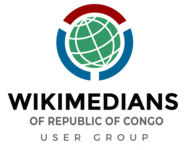Event:Wiki na monɔkɔ mua bísó
Wiki na monɔkɔ lya bísó
Start and end time
Location
In-person event
DR Congo, Congo, Angola
Online event
The link will be made available by the organizers.
Wiki na monɔkɔ mua bísó (Wiki na ndinga ya bwala na beto) yina bo yantikisaka na WikiLinguila kele kampanye ti diambu ya nene ya kutomisa bisalu ya Wikimedia na bandinga ya bwala ya Afrika ya provense ya kati-kati to yina bo ke siamisa bonso bandinga ya insi na bimvuka to bansi na bo. Nsaka yai ya kubasisa mikanda ke wakana ti nkinsi ya kilumbu ya ndinga ya bamama ya ntoto ya mvimba na kilumbu ya 21 ya ngonda ya zole konso mvula, mpi ti bametode ya kimvuka sambu na nsungi ya 2030:
- Kutomisa ngolo ya Movement na beto;
- Kupesa lutaninu mpi kukotisa bantu na kati;
- Kuzitisa lunungu na kubaka badesizio;
- Kuwakana na kati ya bantu yina ke salaka mambu;
- Kutwadisa nzayilu ya kati.
Kikuma
The initiative started when we noticed that we're feeding large wikis almost every day basis in terms of in terms of number of articles and contributors assigned, which have more than one million articles and over 10,000 active contributors, while the small wikis, including ours too, are getting emptier and are becoming more empty. Moreover, we think it's these wikis that can be shaped in our own way, rather the ideal space in which to construct our own editing rules, because, whether it's the wikipedia language version in French, in Sängö, in Fɔngbemɛ, in Kikôngo, in Lingála, in Swahili or even in Kinyarwanda, it is considered from a general point of view to be on a par with that written in English. Along the way, we also encounter a number of obstacles, such as language barriers, because most educational projects are in English.
Beto ke siamisa mpi bantu na kusala ti bantu ya mayele ya bisika ya kulonga ndinga ya Afrika sambu na malongi ya fioti-fioti. Beto me zaba nde bandinga na beto ya kuswaswana kele ve ti mikanda ya kusonika mpi nde mikanda mingi yina bo ke basisaka na bandinga ya bwala kele na nsi ya banswa ya bansoniki, yo yina yo kele mfunu na kusala kumosi ti banzo-nkanda ya nkaka na kisika yai sambu na kuyidika mikanda ya mfunu sambu na kulonga mpi kutomisa ntangu yonso bansoniki na kusonika masolo na nzila ya bandinga na bo na Wikipedia mpi bisalu ya bampangi na yo, sambu na kutanina nivo ya nene mpi kuzikisa mfunu ya mambu na Internet to na bisalu na beto ya Wikimedia.
Balukanu na yai
Fondation ya Wikimedia ke bumbaka kaka bisalu na beto na internet, mpi kana beto sala ve ata kima mosi, ata kima mosi ve ta salama. Yo yina, beto ta yambula ve kupesa maboko na ba wiki ya nkaka, bonso Kifalansa to Kingelesi, kansi beto ta tula mpi na lweka sambu na kumonisa nde beto ke siamisa, ke monisa mpi ke monisa bandinga na beto. Kana ve, ndinga yina ke yelaka ve malembe-malembe ke fwaka, tii kuna yo ta kuma ndinga ya kufwa.
We give little importance to our own works, which can nevertheless be built by and for ourselves. Wiki na monɔkɔ mua bísó aims to bridge this gap, to reduce this contribution gap, in order to highlight our intrinsic identity and revive both our languages by highlighting Wikimedia activities in Congo-Kinshasa and throughout Central Africa, as we wish and want to make the month of February within the Wikimedia movement, The month of mother-tongue contributions, and every February 21, during the International Mother Tongue Day (promulgated by UNESCO in 2000), we celebrate our different languages through the event Wiki na monɔkɔ mua bísó, a good way of preserving the cultural heritage of minority peoples through Wikimedia projects and other structures working to make their culture accessible on the Internet.
Make lobby to the competent local authorities with a view to set up an academy to help and advance our African languages progress and evolve. In the same perspective, we're fighting for the adoption of our respective national languages as language courses in African schools and universities, As in the case of the DRC, French can meanwhile remain the official language of education, but other secondary languages can be taught as branches of language courses, like English, French or Portuguese, throughout the school and university curriculum.
Ntu-diambu ya nkufi
- Kuzenga luswaswanu yai, kufyotuna luswaswanu na kati ya makabu ya nene mpi ya fioti
- Kupesa maboko mingi na Wikipedies na beto ya ke wakana ti bandinga na beto sambu na kutomisa mpi kupesa bantu ya kimvuka na beto dibaku ya kumona bandinga yai mpi yo ke vukisa bantu ya kimvuka ya beto
Kisalu ya nene kele ln.wikipedia.org, kansi mpi ln.wiktionary.org mpi Lingua Libre. Na nsuka ya mvu 2024 mpi na luyantiku ya mvu 2025, beto ke vingila nde beto kuma na masolo 5000 na ln.wikipedia.org mpi mambu mingi ya beto ta sala na bisalu ya nkaka ya mutindu mosi.
Wiki na monɔkɔ mua bísó kele na mfunu ya konso muntu yina ke tubaka ndinga yai sambu na kubaka kiyeka ya kisalu yina mpi kusala yo ya yandi mosi !




